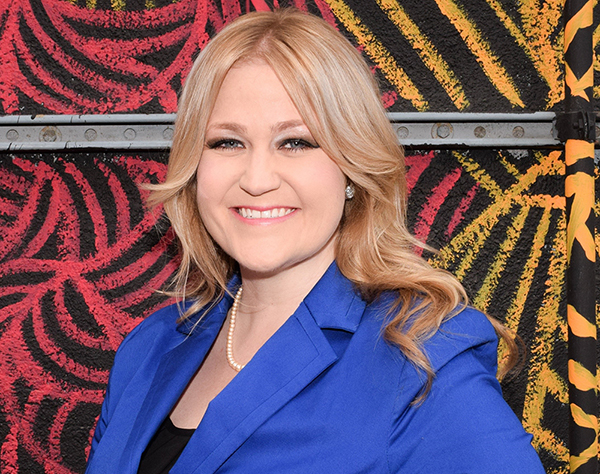Six Questions for MPA ’09 Alum Melanie Lewis Dickerson, Director at Community Solutions
Ellen Patterson | School of Public Affairs Jan 31, 2024
As a Director at Community Solutions, Melanie works directly with communities and partners to build and improve systems to end homelessness using data, quality improvement and problem-solving tools from multiple sectors. She is a leader on the Built for Zero team, where she oversees a portfolio of large-scale change partnerships and social impact investments in the United States and abroad. Prior to joining Community Solutions in 2014, Melanie spent six years with the City and County of Denver where she served as the Partnerships Manager for Denver’s Road Home, focusing on policy development, regional collaboration and strategic partnerships.
In the community, Melanie is the Past President of the Junior League of Denver, Metro Denver Homeless Initiative and Mile High Young Professionals. She is a graduate of the 2015 Downtown Denver Leadership Program and Leadership Denver Class of 2017 and a current participant in the Colorado Women’s Chamber of Commerce Leadership Lab. Melanie was named one of Colorado’s Top 25 Most Influential Young Professionals by ColoradoBiz Magazine in 2020 and one of Denver Business Journal’s 2022 “40 Under 40” class.
She is a Summa Cum Laude graduate of Mississippi State University with a degree in Political Science and a graduate of the University of Colorado Denver with a Master of Public Administration. When not at work, Melanie enjoys live music, community engagement and spending time with her husband Josh, children Carter and Haskell, and goldendoodles Houser and Marley.
What inspired you to pursue a career in public service?
As long as I can remember, I’ve felt a connection to the idea of community and a responsibility to contribute. From the youngest age, my parents encouraged volunteerism and being involved in something larger than myself. This drew me to a career in public service where I could connect my interest in policy, strategy and social impact with a direct opportunity to serve others and help build a better future for all of us.
What has been most meaningful to you about your career?
I was drawn to my specific area of work by the belief that we don’t have to accept things the way they are or that big, wicked social issues are intractable. I’ve been fortunate to have the opportunity to work at organizations that dare to aim for big outcomes and where I can learn, fail and grow. Having a safe place to call home is fundamental to our well-being and the ability for individuals and families to thrive. I hope that I have made an impact by helping transform systems to achieve better outcomes and healthier communities.
What part of your education at the School of Public Affairs has had the greatest impact on your work?
A class that impacted me was Urban Social Problems with Dr. Allan Wallis. I was born and raised in Mississippi and relocated to Colorado for graduate school. I learned so much about Denver, expanded my interest in urban issues and gained deeper insight into the challenges that cities face. This learning built my early foundation on the issue of homelessness and solidified my belief that it is a systems problem that can be solved.
What is your favorite memory of the School of Public Affairs?
I was fortunate to make several lifelong friends at the School of Public Affairs. As someone who was new to Denver, it was so meaningful to connect with a group of women with similar ambition and in a similar stage of life. SPA is set up to foster these types of relationships that help grow us personally and professionally.
Looking ahead, what do you see as the biggest challenges that your field faces?
Compared to many other countries, we have a very small public safety net with funding mechanisms that have led to a mindset of scarcity and organizations working in silos on issues that require a community-wide approach. We also have a culture that views issues like homelessness as an individual failing rather than a systemic and structural issue. We have to shift our mindset by changing the narrative on what’s possible, aiming toward real outcomes and matching the complexity of the issue with collaborative problem-solving methods.
What advice would you give to current students and/or professional development program participants at the School of Public Affairs?
My general advice is always to work hard, be nice and have fun! As cliche as it sounds, anything is truly possible if we’re willing to look at sticky issues in new ways and refuse to accept that the status quo is the best we can do.